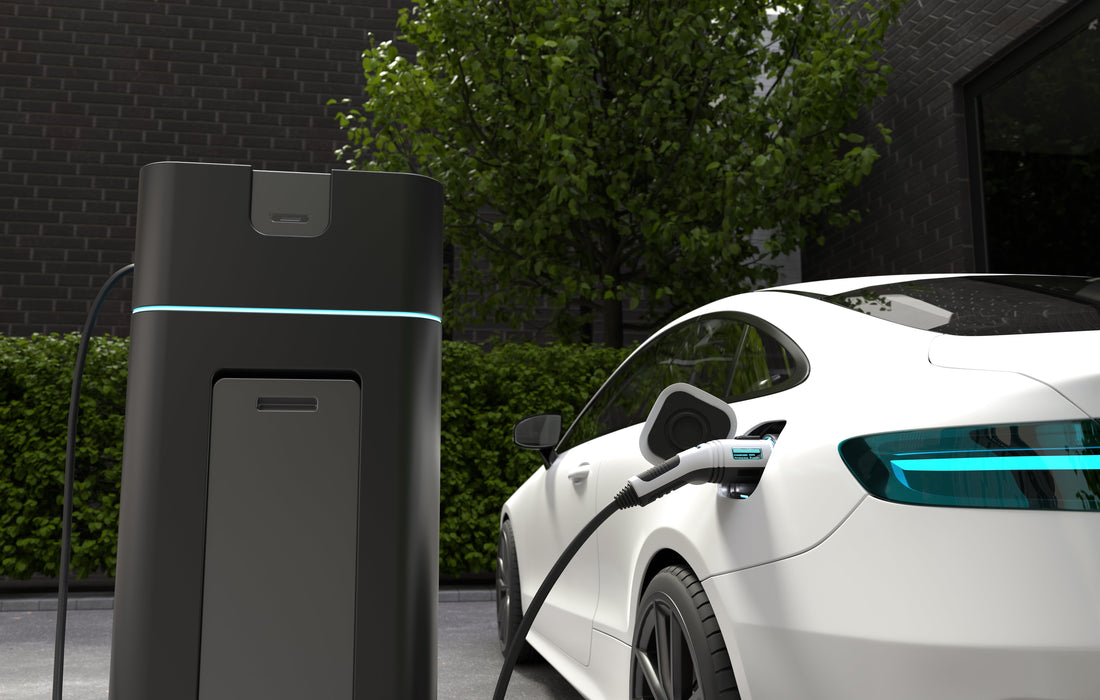
The Future of Electric Car Charging: A Guide to Electric Car Chargers
Share
As the world moves towards more sustainable and environmentally friendly transportation options, electric vehicles (EVs) are becoming increasingly popular. One of the critical components of the electric car ecosystem is the electric car charger. Whether you're a new EV owner or considering making the switch to an electric car, understanding how electric car chargers work is essential. This article provides a comprehensive overview of electric car chargers, their types, installation process, and how to choose the right one for your needs.
What is an Electric Car Charger?
An electric car charger is a device used to replenish the battery of an electric vehicle. Unlike traditional fuel-powered cars, which rely on gasoline or diesel to run, electric vehicles use electricity stored in batteries. Charging an electric vehicle is the process of transferring electrical energy from a power source to the car’s battery.
EV chargers come in different shapes and sizes, offering varying levels of charging speed and convenience. The speed at which an electric car charges depends on the type of charger and the battery capacity of the vehicle.
Types of Electric Car Chargers
There are three main types of electric car chargers, each offering a different charging speed and installation complexity:
-
Level 1 Charger (Standard Home Outlet)
- Power Source: 120V standard electrical outlet
- Charging Speed: Slow (adds about 3-5 miles of range per hour)
- Best for: People who have time to charge their vehicles overnight and don’t drive long distances daily.
Level 1 chargers are the simplest form of electric car chargers and can be plugged into any standard household outlet. They are usually portable and are included with most EVs when purchased. However, due to their slow charging speed, they are best suited for those who do not need to charge their car quickly or who have the time to charge overnight.
-
Level 2 Charger (Home or Public Charging Station)
- Power Source: 240V outlet (requires a dedicated circuit)
- Charging Speed: Moderate (adds about 10-60 miles of range per hour)
- Best for: Homeowners who want faster charging times, or those who frequently charge their car at work or public charging stations.
Level 2 chargers are commonly used in homes, workplaces, and public charging stations. They offer faster charging compared to Level 1 chargers, making them ideal for users who need a quicker turnaround time. Installing a Level 2 charger at home requires a 240V outlet and often an electrician to set up the circuit.
-
Level 3 Charger (DC Fast Charger)
- Power Source: 480V direct current (DC)
- Charging Speed: Fast (can charge an EV to 80% in 20-30 minutes)
- Best for: Commercial locations, highway charging stations, and drivers who need to quickly charge during long trips.
Level 3 chargers, also known as DC fast chargers, are the fastest way to charge an EV. They are typically found at commercial charging stations or highway rest stops, as they require specialized equipment and high-power electrical systems. These chargers can provide up to 80% of a battery’s charge in just 30 minutes, making them perfect for long-distance travelers or those in a rush.
Installation of Electric Car Chargers
The installation of an electric car charger depends on the type of charger you choose and the existing electrical setup in your home or business.
-
Level 1 Charger: This type of charger can usually be plugged into any standard electrical outlet, so installation is not required.
-
Level 2 Charger: Installing a Level 2 charger requires a dedicated 240V circuit, which often involves hiring a licensed electrician to ensure that the electrical system is capable of supporting the higher voltage and power requirements.
-
Level 3 Charger: Level 3 chargers are typically not installed in residential homes due to their complex electrical needs and the high cost of installation. These chargers are more common in public or commercial locations.
It’s important to ensure that your electrical panel can support the additional load required by Level 2 or Level 3 chargers. If necessary, an electrician can help assess and upgrade your electrical system to accommodate these chargers.
